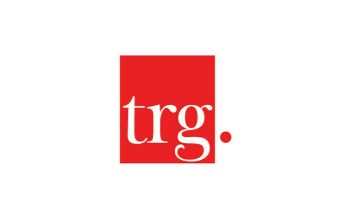ISLAMABAD: The Securities and Exchange Commission of Pakistan (SECP) has expressed serious apprehension that the chances of money laundering may increase after the enhancement of the monetary limit of foreign remittance from five million rupees to rupee equivalent of US$100,000.
SECP Commissioner Abdul Rehman Warraich informed the Senate Standing Committee on Finance on Tuesday that the Federal Board of Revenue (FBR) cannot ask for the source of investment or income under section 111 of the Income Tax Ordinance 2001.
Similarly, the FBR cannot probe tax evasion on the basis of the source of remittance under section 111 of the Ordinance 2001. Basically, section 111 taxed unexplained income except foreign remittances coming into Pakistan.
SECP enhances documentation for foreign cos’ registration
He stated that under the Finance Bill 2023, the government has enhanced the monetary limit of foreign remittance remitted from outside Pakistan from five million rupees to rupee equivalent of US$100,000 for the purpose of section 111(4) which places a bar on asking nature and source of unexplained income/assets.
However, there are more chances of money laundering after an increase of this limit, which cannot be probed by the tax officials of the FBR. The FBR also cannot ask about the source of the money whether the amount has been earned through legitimate means or not, the SECP Commissioner added. Senate Standing Committee on Finance approved the proposal of the Finance Bill 2023.
The committee chaired by Senator Saleem Mandviwalla, concluded its deliberation on the Finance Bill, 2023-2024. During the committee meeting, thorough discussions were held to review the Sales Tax Provisions of the Finance Bill, 2023-2024, with a clause-wise examination of the bill.
The committee carefully evaluated each section of the bill and made several recommendations/decision. Certain sections were accepted, some were rejected, and a few were put on hold for further clarification. Notably, all sections falling under the ambit of 99D were deferred to allow for additional clarification.
A member of the Senate finance committee Senator Saadia Abbasi said that the heading of section 111 of the Income Tax Ordinance 2001 needs to be changed. Section 111 (un-explained income and assets) should be renamed as the words “unexplained” gives a message that Pakistan is a country of money launderers.
The FBR Member Policy Inland Revenue stated that the people went into litigation even after change of one legal word in the law and it should remain intact.
The FBR Member stated that the proposed threshold is similar to the amendment made vide Income Tax Amendment Ordinance 2018, whereby, this threshold was reduced to Rs10 million at the time. Considering the Pak-US dollar back then, the threshold of Rs10 million amounted around US$100,000. The same threshold of US$100,000 has been proposed through this bill 2023.
The committee approved an increase in withholding tax rate from one per cent to five per cent on payment to non-resident through debit/credit or prepaid cards (2 per cent to 10 per cent for non-active taxpayers person). This proposal would increase the withholding tax (WHT) on international credit card transactions to two per cent for individuals on Active Taxpayer List (ATL) and 10 per cent for non-ATL citizens.
The FBR Member stated that the proposal is to discourage foreign exchange outflow on non-essential purchases online and payments made for Netflix or Google accounts.
When the Chairman committee asked the State Bank of Pakistan (SBP), the concerned official informed that around one billion dollars have been sent abroad through the payments made through 49 million credit and debit cards per year.
The committee recommended a reduction in the rates of the super tax from 10 to seven per cent and from eight to six per cent.
Committee members further approved a clause in Finance Bill 2023 that allowed the federal government to collect Rs200,000 adjustable advance tax from the employers of foreign workers employed as domestic helpers in Pakistan at the time of issuance/renewal of work permit/visa to such foreign helpers.
According to Finance Bill 2023-24, any authority issuing or renewing a domestic aide visa to any foreign national as a domestic worker at the time of issuing or renewing such visa shall collect from the agency, sponsor, or the person as the case may be, employing the services of such foreign national a tax of Rs200,000.
The committee also approved waiving off a two per cent final withholding tax on the purchase of immovable property for non-resident individual POC/NICOP holders where the immovable property is acquired through foreign remittances remitted from abroad.
The committee accepted the inclusion of Section 113, which pertains to minimum tax on the income of certain individuals. Additionally, Section 146-D, concerning the recovery of outstanding liabilities under other laws, and Section 152, which allows for applications of exemption certificates related to payments to non-residents, were also accepted.
To encourage exports, the committee approved the proposal in Section 154, which treats sales made to Direct Exporters under the Export Facilitation Scheme, 2021, as indirect exports subject to a reduced tax rate of one per cent, as opposed to the higher rate of 4.5per cent under Section 153(1)(a). Furthermore, Section 154A, related to tax on the export of services was also approved.
Senator Mandviwalla emphasized the need to focus on the IT sector, highlighting that it requires incentives and special attention. Federal Minister for State Aisha Ghaus Pasha stated that the finance minister has held multiple meetings with stakeholders from the IT sector, while Senator Mandviwalla called for allowing them to maintain their accounts outside. Minister Pasha added that the IT sector has been given a 35per cent allowance, but the committee stressed the urgency of resolving the sector’s issues.
Sections related to “Tax on Bonus Share as Final Tax” were deferred for further clarification.
It also recommended fixing the super tax at eight per cent instead of 10per cent on income exceeding 500 million rupees and six per cent super tax on amounts exceeding 400 million rupees, as opposed to the proposed eight per cent.
The member of the FBR informed the committee that, to encourage the enlistment of companies at the Pakistan Stock Exchange, the minimum tax rate under Section 113 would be reduced from the current 1.25 percent to one per cent for listed companies.
Copyright Business Recorder, 2023
Read the full story at the Business Recorder - Latest News website.



